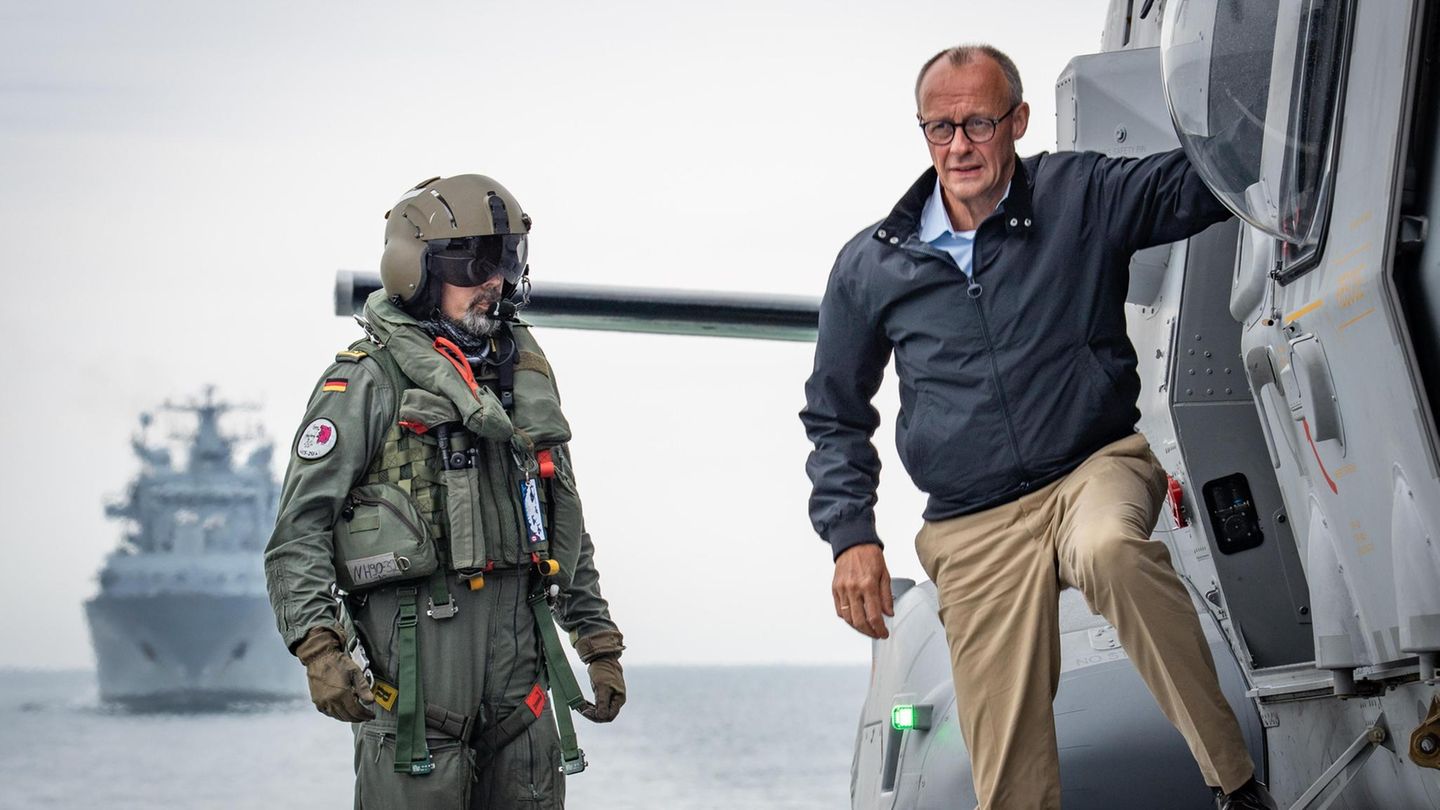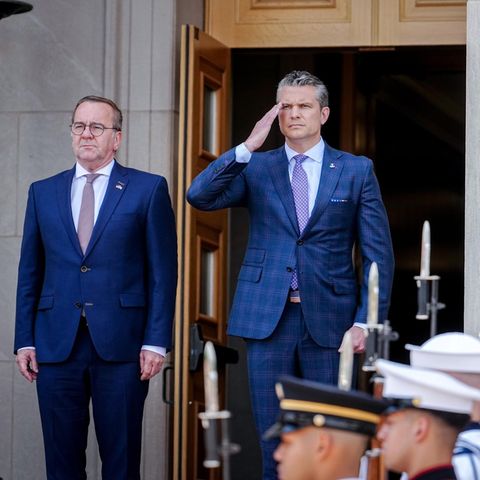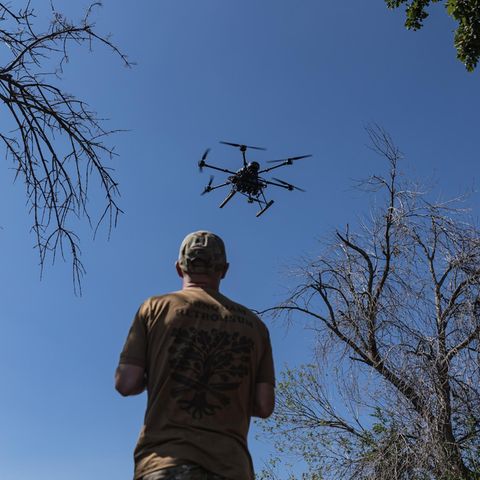analysis
No more peace? The Chancellor’s shocking sentence
Copy the current link
Add to the memorial list
Drones feed the fear that Russia will expand its war to Europe. Friedrich Merz also upgrades rhetorically – and takes a political risk.
The Chancellor was a guest in Düsseldorf this week, at the “Ständehaus-Treff” of the “Rheinische Post”. He chatted about how long he works in the day (“16 hours”) and mused about East Germany (“It is so much different”).
Of course, it was also about the wars of that time and about what they mean for Germany. And so Friedrich Merz said: “I want to say it with a sentence that may be a bit shocking at first glance, but I mean exactly how I say it: we are not in war, but we are no longer in peace.”
Now the CDU chancellor is far from the first to say this sentence. It is almost standard at security conferences and military circles. “We are not formal juristically in the war, but in my opinion we have not been in peace for a long time,” said Lieutenant General André Bodemann.
Boris Pistorius went ahead
But that politics picks up the formula is new. After using the Baden-Württemberg CDU State Secretary Thomas Blenke in August, SPD Defense Minister Boris Pistorius said last Thursday: “We are not at war, but we are also no longer in full peace.”
Pistorius had just completed a meeting of the Eastern Minister of East in Thuringia and had been raised on the drone sightings in Denmark. “We are attacked,” said the minister, through drones, but also through hybrid disinformation campaigns. “This is the reality we are dealing with and with which we are dealing with.”
The next day, in a speech on the “Schwarz Ecosystem Summit” in Berlin, the Chancellor also adopted the wording for the first time – in order to finally reaffirm it again in Düsseldorf. A rhetorical accident, as he often happens, may be considered excluded. In this case, the Chancellor actually means the way he says.
Nevertheless, it remains a delicate balancing act with a high political risk. On the one hand, Merz has to convince the public that the times of a safe and largely free peace are over. On the other hand, he is not allowed to spread any fear of war, because extremists and populists in particular benefit from this.
AfD and BSW have long been accusing the federal government of “Workers”. In the campaigns before the state elections 2026-especially those in Saxony-Anhalt and Mecklenburg-Western Pomerania-the two parties are likely to place the topic centrally.
His predecessor showed him how narrow the political ridge is for Merz. At first, Olaf Scholz announced the “Time turn” after the Russian invasion of Ukraine in February 2022 and thus initiated the greatest upgrade phase since reunification. Just two years later, in the 2024 European election campaign, he had himself been posted as “Peace Chancellor”. The result of this communicative confusion was a disaster.
Merz looks more consistent. As an opposition leader, he contributed the 100 billion euros in special loans for the Bundeswehr. And as a designated chancellor, he ensured that the debt brake is no longer valid for military spending.
Nevertheless, Merz also practiced reluctance. So he expressly did not repeat the concept of “manifold” introduced by Pistorius, but preferred to spoke of “defense and military ability”. And as often as he claims to deliver Taurus marching aircraft to Ukraine in the opposition period: as a chancellor, he did not meet it.
Towards the alarm
The formula, which was now received by Merz, tries to maintain this balance (“no war”), but at the same time moves the weight significantly towards the alarm (“no longer in peace”). This is a meaningful interpretation of reality.
Because yes, there is no declaration of war and no war acts – and therefore no war. At the same time, however, Europe and NATO are attacked by Russia, whether with cyber attacks on the net, sabotage files in the Baltic Sea, attacks on infrastructure or with systematic airspace injuries by drones and even combat aircraft.
Similar to the Cold War until 1990, the situation is characterized by targeted provocations, representative conflicts and intelligence agencies, only that things like the Internet or drones have now been added. Germany, through which the central line of conflict was running, is now united. But this creates a multipolar disorder, especially from the old bi- and interim unipolar order.
“We are in a completely different world,” said Merz in Düsseldorf. It is a world in which there is no longer peace in Germany.
Source: Stern
I have been working in the news industry for over 6 years, first as a reporter and now as an editor. I have covered politics extensively, and my work has appeared in major newspapers and online news outlets around the world. In addition to my writing, I also contribute regularly to 24 Hours World.






